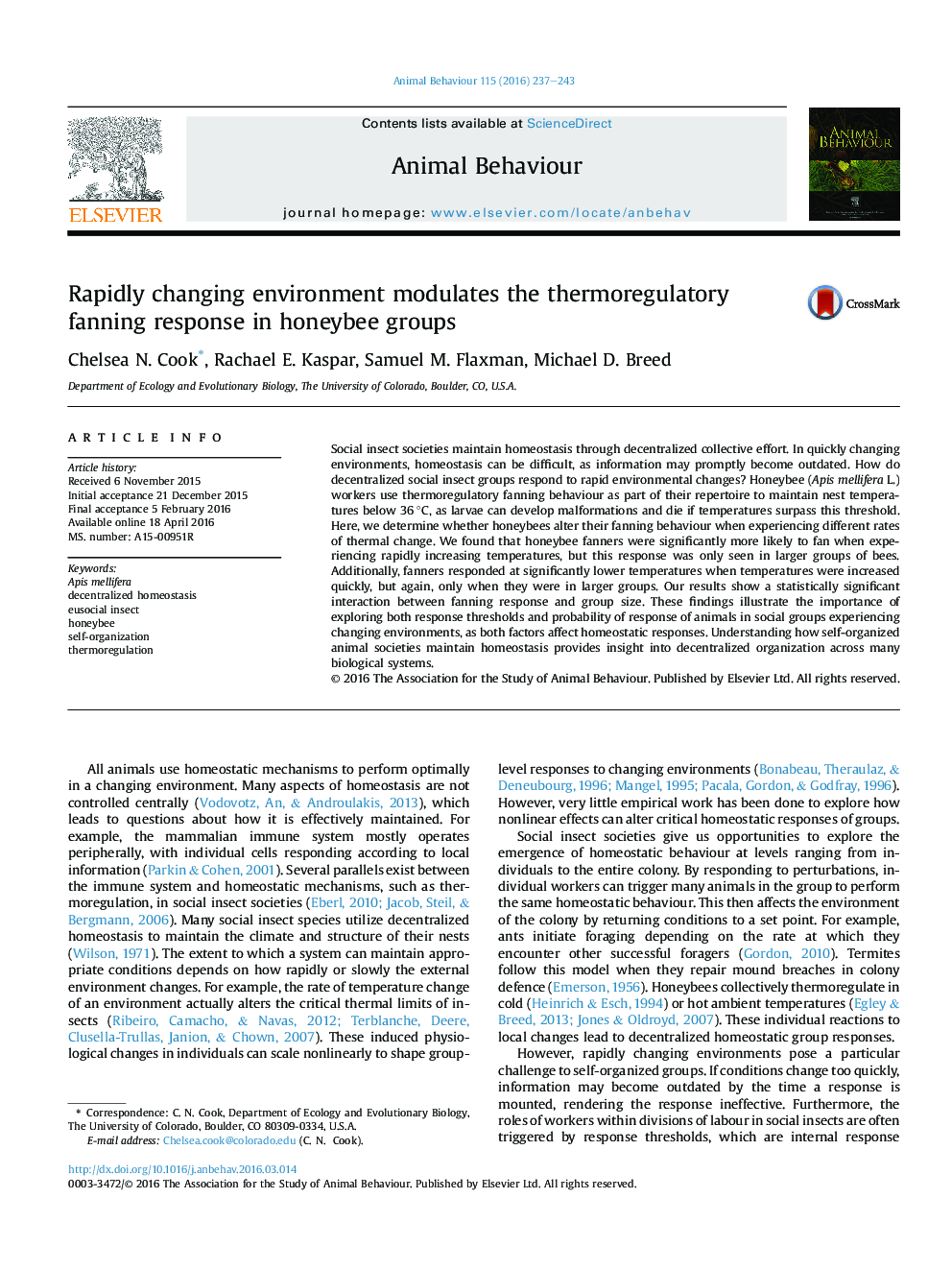| کد مقاله | کد نشریه | سال انتشار | مقاله انگلیسی | نسخه تمام متن |
|---|---|---|---|---|
| 8489133 | 1552213 | 2016 | 7 صفحه PDF | دانلود رایگان |
عنوان انگلیسی مقاله ISI
Rapidly changing environment modulates the thermoregulatory fanning response in honeybee groups
ترجمه فارسی عنوان
تغییر محیط به سرعت در حال تغییر واکنش گرماکنی در گروه های زنبور عسل است
دانلود مقاله + سفارش ترجمه
دانلود مقاله ISI انگلیسی
رایگان برای ایرانیان
کلمات کلیدی
موضوعات مرتبط
علوم زیستی و بیوفناوری
علوم کشاورزی و بیولوژیک
علوم دامی و جانورشناسی
چکیده انگلیسی
Social insect societies maintain homeostasis through decentralized collective effort. In quickly changing environments, homeostasis can be difficult, as information may promptly become outdated. How do decentralized social insect groups respond to rapid environmental changes? Honeybee (Apis mellifera L.) workers use thermoregulatory fanning behaviour as part of their repertoire to maintain nest temperatures below 36 °C, as larvae can develop malformations and die if temperatures surpass this threshold. Here, we determine whether honeybees alter their fanning behaviour when experiencing different rates of thermal change. We found that honeybee fanners were significantly more likely to fan when experiencing rapidly increasing temperatures, but this response was only seen in larger groups of bees. Additionally, fanners responded at significantly lower temperatures when temperatures were increased quickly, but again, only when they were in larger groups. Our results show a statistically significant interaction between fanning response and group size. These findings illustrate the importance of exploring both response thresholds and probability of response of animals in social groups experiencing changing environments, as both factors affect homeostatic responses. Understanding how self-organized animal societies maintain homeostasis provides insight into decentralized organization across many biological systems.
ناشر
Database: Elsevier - ScienceDirect (ساینس دایرکت)
Journal: Animal Behaviour - Volume 115, May 2016, Pages 237-243
Journal: Animal Behaviour - Volume 115, May 2016, Pages 237-243
نویسندگان
Chelsea N. Cook, Rachael E. Kaspar, Samuel M. Flaxman, Michael D. Breed,
